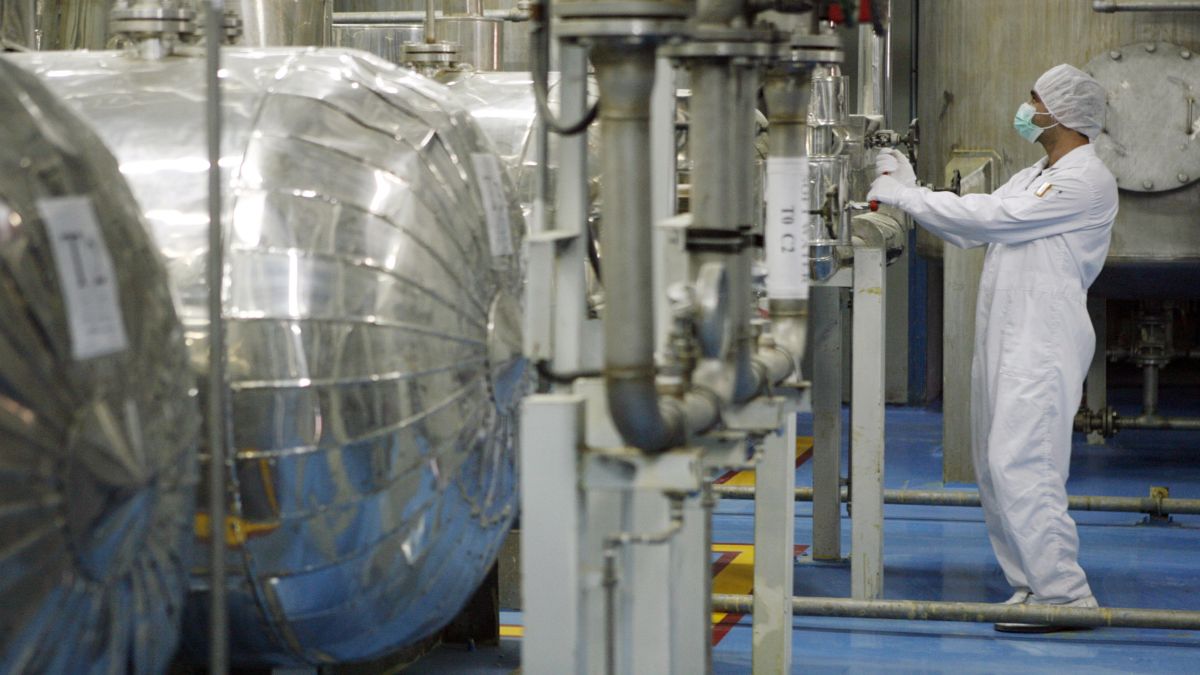Defying calls from its allies for restraint and calm, Israel on early Friday morning reportedly launched a strike against Tehran in retaliation to its last weekend’s attack, plunging West Asia into further conflict.
Early Friday morning around 4.30 am local time, explosions could be heard in the city of Isfahan with US officials confirming that Israel had launched an attack against Iran. The Iranian media said the country had brought down three drones, but refuted claims of a missile strike.
We take a better look at the city of Isfahan and why Israel chose this site for its attack.
Significance of Isfahan
Located in western Iran, Isfahan is situated on the north bank of the Zayandeh River and houses a population of nearly 20 lakh. In the 17th Century, the city’s wealth and grandeur inspired the rhyming proverb, Isfahan nesf-e jahan, or “Isfahan is half the world.”
Today, Isfahan is mainly known abroad as the site of Iran’s premier nuclear research facility. Several other nuclear sites are also in Isfahan’s province — including the underground Natanz enrichment site.
As per a report in The Guardian, the nuclear facility in Isfahan operates three small Chinese-supplied research reactors, as well as handling fuel production and other activities for Iran’s civilian nuclear programme.
And in February, Iran had stated that it was building a fourth nuclear research reactor in Isfahan. Iran described the 10-megawatt reactor as a “research reactor,” saying it would have a variety of applications including fuel and nuclear material tests and the production of industrial radioisotopes and radiopharmaceuticals.
Impact Shorts
More ShortsIn addition to the nuclear sites, Isfahan is also the eighth hunting base of the Army Air Force, reported FARS news.
Former US assistant secretary of state Mark Kimmitt told the BBC that Israel might have chosen Isfahan as its target owing to its significance to Tehran. “Isfahan really is to a great extent the centre of the Iranian nuclear programme in terms of training, research and, what some would say, the development of the Iranian nuclear capability.
“So it’s a likely site that Israel would hit because the greatest fear the Israelis have is not continued missiles today but a nuclear capability tomorrow.”
Michael Clarke, a military analyst for Sky News, also agreed with this theory. He told the British news outlet that Isfahan “would make sense” as a target as it’s home to one of the least sensitive nuclear sites.
“The fact that Isfahan is one of the cities that does quite a lot of nuclear work is also symbolically quite important, I think, if the Israelis are indicating that they’re not frightened to go after these sites,” he was quoted as telling Sky News.
Col Cedric Leighton (retired), an US air force official, also told CNN that Isfahan’s air base is co-located to its airport. Also, Isfahan is the home of Iran’s fleet of F-14 fighters, purchased before the 1979 Islamic revolution.
US’ Major General Mark MacCarley (retired) further explained to CNN that by targeting Isfahan, Israel was issuing a warning that it could overwhelm Iran’s defences.
“I think that there was a very deliberate thought process on the part of the Israeli war cabinet," he said, adding, “Israelis had to retaliate, but at the same time, within that retaliation was a message, and that is, ‘Yes, we can get through. Don’t do it again. If you do it again, then all heck will break out’.”
Isfahan ‘safe’
Shortly after Israel’s attack, state media in Iran showed visuals from the city of Isfahan , perhaps to downplay the strike. Iran’s media also reported that the nuclear facilities in the city were “completely secure”.
“Nuclear facilities in Isfahan province are completely secure,” Tasnim news agency reported quoting reliable sources.
Genera Siavosh Mihandoost, a local army commander, also said that the incident caused “no damage” around Isfahan.
The UN nuclear watchdog, the International Atomic Energy Agency, also stated that there has been no damage to Iran’s nuclear sites. Furthermore, it said that it was monitoring the situation and urged for “extreme restraint”.
Airlines diverted, tensions rise
Iran on Friday morning stated that it had deployed the country’s defence system and three drones had been shot down over the central city of Isfahan. Brigadier General Siavash Mihandoust confirmed that air defence batteries hit “a suspicious object”. There was no damage, according to the senior commander.
Israel has remained completely mum on the situation. Only Israel’s firebrand leader Tally Gotliv posted on X, “Good morning dear people of Israel. A morning on which our head is held high with pride.”
“Israel is a strong and powerful country. May we regain the power of deterrence,” she wrote.
Meanwhile, airlines scrambled to quickly change flight paths over Iran, diverting to alternate airports, or returning planes to their points of origin in response to the temporary airspace and airport closures following the reported explosions in Iran’s city of Isfahan.
Earlier, Iran closed its airports in Tehran, Shiraz and Isfahan after the reported explosions and cleared flights from the western portion of its airspace for a few hours, according to flight tracking website FlightRadar24.
Among those that cancelled flights to Tehran was the United Arab Emirates budget airline, Fly Dubai, according to Reuters news agency. One of its earlier flights turned back to Dubai, it said.
Moreover, Australia has urged its citizens to leave Israel, fearing a military reprisal. The US has also restricted travel for its embassy personnel in Israel and their family members “out of an abundance of caution” following reports of Israel’s retaliatory strike on Iran.
The embassy said staff have been told not to travel outside the greater Tel Aviv region - including Herzliya, Netanya, and Even Yehuda - and the Jerusalem and Be’er Sheva areas until further notice.
With inputs from agencies
)